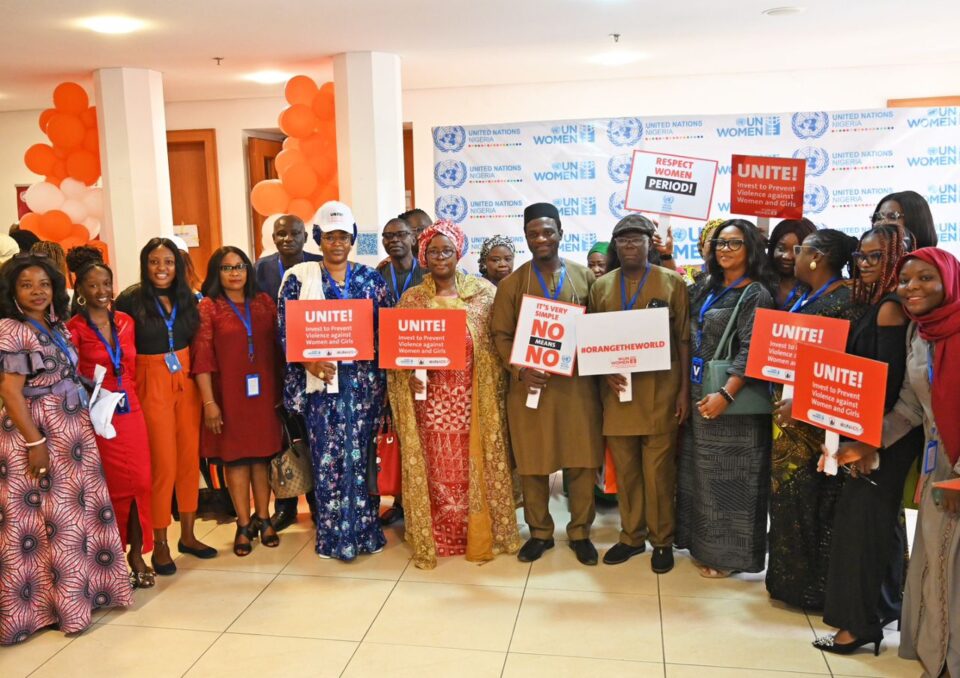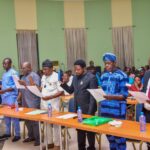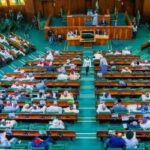Our gender and rights issue correspondent, STELLAMARIES AMUWA who followed the maiden UN Women Nigeria Media Partners Conference, held in Abuja on Monday, 4 December 2023, with the theme: Escalating Media Action for Women’s Empowerment and Ending Violence Against Women and Girls”, brings the perspectives in this beautiful narration.
The event which was part of the activities lined up by the UN Women Nigeria to mark the 2023 16 days of activism, had a lot of representatives from both print and electronic media organisations in attendance.
The UN Women in Nigeria, focuses on four thematic areas such as Gender and Participation in Public Life, Women’s Economic Empowerment, Women’s Peace and Security and Humanitarian Action, as well as Elimination of Violence Against Women and Girls. The UN ensured proper coordination and oversight support for government and partners’ gender-responsive interventions across Nigeria to synergise for productive collaboration.
Further, the above aim, UN notes will not be achieved if collaboration with the media to re-access their efforts so far in bringing women’s issues to the front burner and changing the narrative around myths and social norms that are barriers to gender equality and women’s empowerment is lacking.
Speaking during the conference, the United Nations (UN) Women Country Representative to Nigeria and ECOWAS, Ms. Beatrice Eyong, urged the media to put down its weight in breaking down barriers to gender equality stressing that the media have limitless capabilities.
Eyong stated that justice for survival of gender-based violence will not be denied or delayed if the media closely monitor the judiciary. “We believe that the media can bring women issues to the front-burner and amplify the voice of gender advocacy for women’s empowerment. We believe the media can help dismantle harmful traditions and social norms that impede equal opportunity, justice, and fairness and promote violence against women and girls.
“The executive, legislative and judicial arms of the government will enforce gender-responsive laws if the media insists. Your power as media is limitless. Justice for survivors of gender-based violence will not be denied or delayed if the media closely monitors the judiciary”.
She added: ” The UN is supporting the government of Nigeria in addressing its challenges and realising its development aspirations and transformative change. We cannot do this effectively without the support of the media. We need stronger partnerships, and the media is at the top of this need.
“As the United Nations, we remain firmly committed to gender equality and women’s empowerment in achieving SDG 2030 targets, and we need the media to get this done. Media play a critical role in achieving Agenda 2030, which includes ensuring citizens are well-informed to enable them to form opinions based on facts.
Eyong who in her capacity also represented the Resident Coordinator, United Nations, Matthias Shamale reiterated that the media have power similar to the executive, the legislature, and the judiciary and can hold policymakers and the government accountable and make demands that governments cannot ignore.
“In Nigeria, we can channel the influence of the media to amplify the advocacy for equal opportunity and women’s empowerment. With the press behind us, we will make massive progress in breaking down barriers to gender equality, and more gender-based violence offenders will be put in jail.”
Meanwhile, Nigeria has the first African woman to lead the WTO; the Deputy Secretary General of the UN, Amina Mohammed, is also a Nigerian woman. A third of bank CEOs are women, and Nigeria has the highest number of female representatives on boards of private sector organisations in Africa. “The media needs to do more to profile many successful Nigerian women for the purpose of learning and motivating other women and dismantling unfavourable cultural perceptions.
Similarly, the National President of the Nigeria Association of Women Journalists (NAWOJ) Aisha Ibrahim, described the event as apt and in the right direction.
Aisha said “Our role as members of the fourth estate is clearly cut-out for us, which is to lend voice to the voiceless and act as unbiased umpire in driving awareness about violence against women and girls. This conference is very dear to us as NAWOJ, we are strategically placed and we have a critical role to play to ensure that all forms of violence are reduced to the barest minimum.
In the statement issued by the Resident Coordinator, United Nations, Matthias Schmale, she emphasied that over the years the UN Women have partnered with the government of Nigeria, CSOs and donors advocate for increased representation of women in leadership, at the communal, local government, state, and federal level.
She reiterated on the Women’s economic empowerment
“To blur the poverty in Nigeria, we invest in interventions that enhance women’s livelihood and enable women to have income security, decent work, and economic autonomy. We are working with the Nigerian government to institutionalize gender-affirmative procurement policies and mechanisms that will improve women’s participation in public and private procurement contracts.
Women’s peace and security and humanitarian action –
We work with the government and partners to promote sustainable participation of women in peacebuilding and conflict resolution and to ensure all women and girls benefit equally from humanitarian actions.
“Elimination of violence against women and girls –
We work with stakeholders to ensure policies and laws are implemented to curb the prevalence of GBV, and that victims and survivors get access to justice and social services. Three UN Women-supported one-stop centers are currently in operation in Sokoto, Lagos and Cross Rivers and have provided services for over 3000 GBV survivors, including boys. We have strengthened the capacity of community surveillance groups and institutions which are reporting GBV issues and providing survivors access to legal and economic justice.
“Normative and Coordination –
Our work is also to ensure we provide coordination and oversight support for government and partners’ gender-responsive interventions across Nigeria to ensure synergy and productive collaboration. We recently launched the zonal coordination platforms for Northeast, North Central, South-East, South-South, and South-West.
Again, the UN Women noted that they needed a media conference to bring the multimedia together so that collectively, they can re-access their efforts so far in bringing women’s issues to the front burner and changing the narrative around myths and social norms that are barriers to gender equality and women’s empowerment.
However, some questions where asked for example ‘Has the media done enough to change the negative gender perception of the public? ‘Have we done enough to pressure the government into adopting gender-responsive policies?” ‘How do we enhance judicial action to fast-track prosecution of gender-based violence offenders? ‘Is there something the media can do about the gender bills that were set aside by the National Assembly?
There’s work to be done, a lot more work. The media have been in front burner but has to do more by not relenting in writing and holding government accountable to what the law stipulates bout women and girls right.
Speaking at the conference, the Executive Director, International Society of Media in Public Health, Moji Makanjuola noted that often times negative reports surfaces, there is need to start drawing inspirations from reporters from where things are coming from.
“When we talk about countries like Norway where you see women in governance, first it must be about governance. When there is insurgency or war the women suffers and when they come to conclusion to stop the insurgency, they do not include women on the table.
“We have our peculiarities that must be addressed. A woman who is unable to access healthcare facilities at the time she needs it is a nation in distress. You cannot talk about national development without including the woman. There is need for us to close the gap and the time to do that is now, close the gap of education, gap of economy and other various sectors.”
Similarly, Chuks Chyke, a film maker who was at the event said there is no world without a woman
” We need to empower the woman with the right information, when we literally empower a woman with knowledge it simply means we are empowering the world because the woman is the world.
“Programmes like this is good for all woman to get knowledge on how to build community. The Bible said train up a child in the way he should grow and he will not depart from it.
“Imagine if you train up a woman in the right way she will now train the child the right way he/she will grow.
“Women are the key in every good deed, if woman finds herself in a certain place not suitable for her, she will walk away knowing that it is not her only option.
The abuser may never want to stop but the abused can stop if the woman know her right.”



